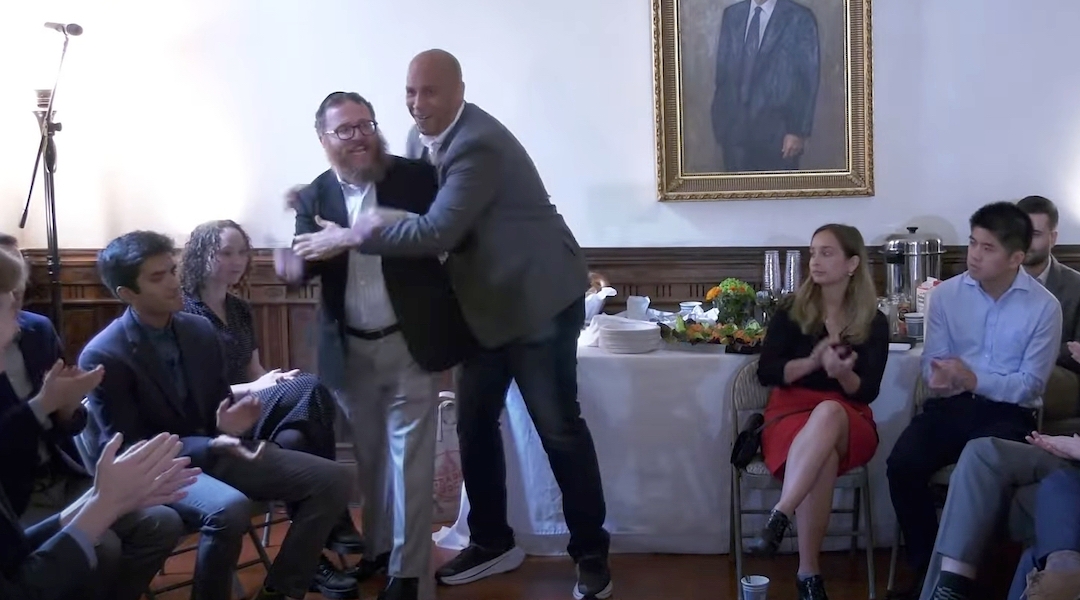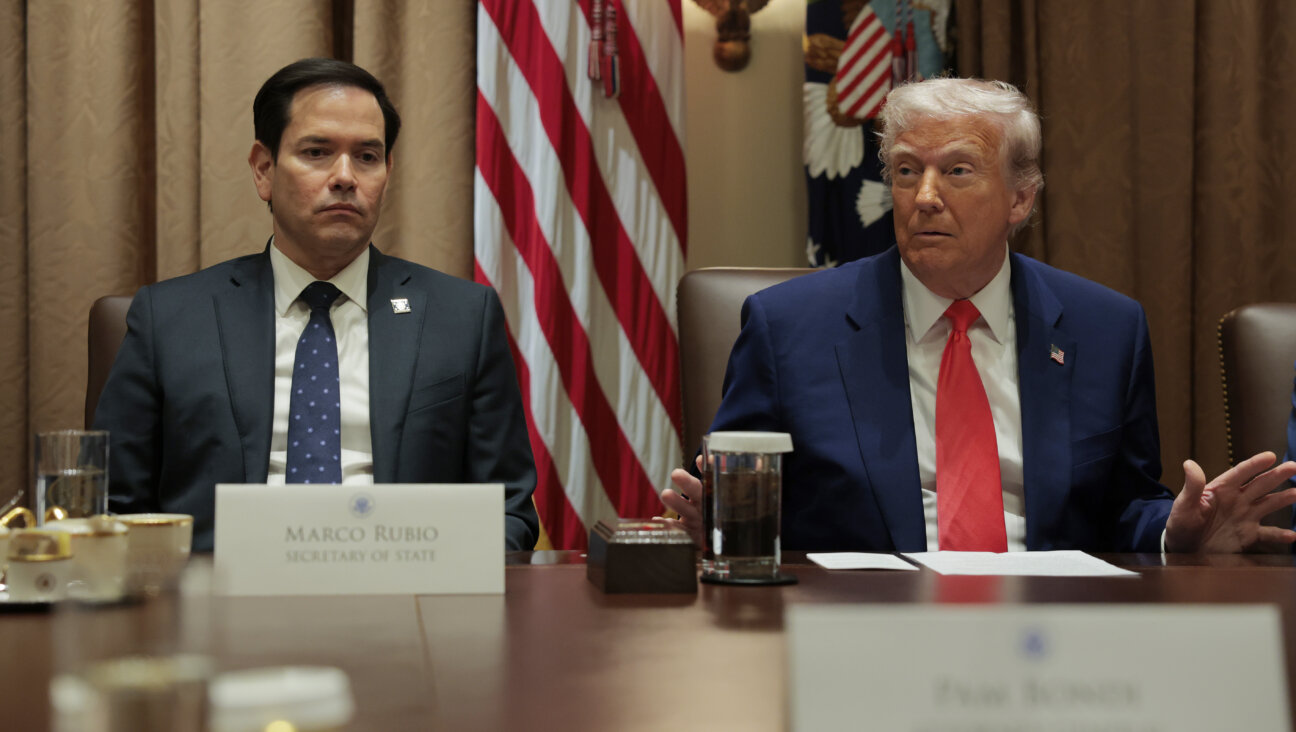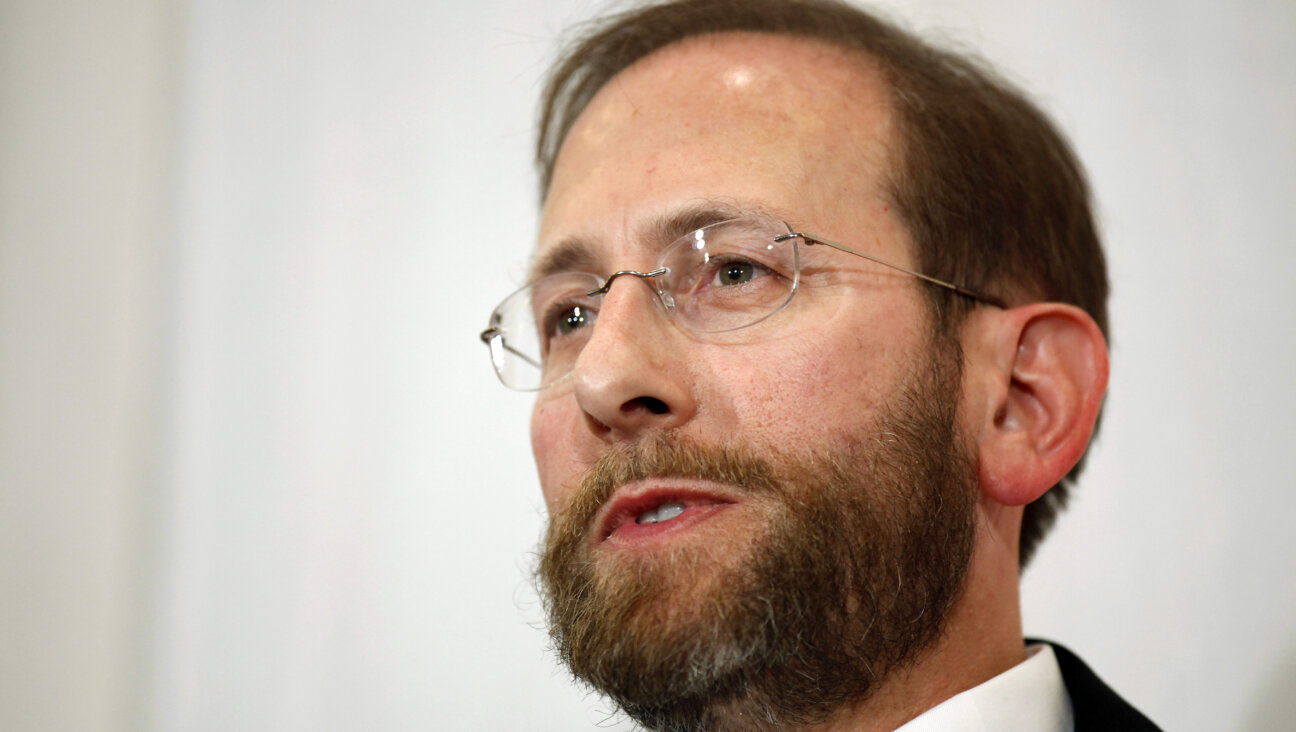Experts Debate ‘Ticking-bomb’ Torture
As debate over the use of torture spreads from Iraq to Europe to Washington, new questions are being raised about the validity of the claim that harsh interrogation techniques can be effective in extracting information on impending terrorist attacks.
The subject, known to experts as the “ticking-bomb scenario,” surfaced in a high-level debate last month at the United States Military Academy at West Point, where military and legal experts gathered to discuss changing patterns of international humanitarian law.
At the West Point seminar, organized by the Catholic University of America and the American Jewish Congress, law professor Mary Ellen O’Connell of Notre Dame University argued that there is no credible evidence of an actual ticking-bomb case leading to useful intelligence on an impending attack. She contrasted her views with those of Harvard University law professor Alan Dershowitz, who cited the ticking-bomb scenario in his 2002 book “Why Terrorism Works.” Some Israeli experts have also cited the ticking-bomb argument.
Several top military officials, including the dean of the West Point law school, voiced doubts similar to O’Connell’s about the usefulness of torture.
This new twist in the controversy comes amid a growing wave of criticism over actions taken by the Bush administration in its war on terrorism, particularly in its treatment of prisoners here and abroad.
Last week, the White House reached an agreement with Senator John McCain, the Arizona Republican, on a measure that would ban torture and limit interrogation tactics in U.S. detention facilities. The administration had strongly opposed the provision, especially as it applied to CIA personnel. But the White House backed down after large majorities rallied to support the measure in both houses of Congress, driven by moral outrage and by the damage to America’s image abroad from the Abu Ghraib abuse scandal.
The administration is also facing criticism on other fronts, including fresh allegations of torture by the Iraqi government and international protests over news reports of secret CIA detention facilities in Europe.
In opposing new limits on their actions, the administration and its allies argue that the morality of a comprehensive torture ban could be outweighed by the imperative of saving lives through the extraction of information from suspects.
The example most often cited by advocates is the interrogation of Abdul Hakim Murad in the Philippines in 1995. Murad, an alleged Islamist militant, was held for more than two months and was said to have provided interrogators with information that helped thwart the bombing of a dozen jetliners over the Pacific in what is seen as an early Al Qaeda plot.
The veracity of the Murad case was assailed at the West Point seminar both by O’Connell and by a lawyer with the International Committee for the Red Cross, Jelana Pejic.
O’Connell expressed dismay that Dershowitz had used the Murad case to support his proposal for a “torture warrant” that would authorize harsher interrogation techniques to be used in such instances under strict conditions and close scrutiny.
In his 2002 book “Why Terrorism Works,” Dershowitz claimed that Murad had been tortured for 67 days and might have revealed crucial information about the plot.
But in a paper she wrote advocating a total ban on torture and cruel treatment, O’Connell referred to news items and scholarly articles to dispute the evidence that Murad was tortured and that he disclosed anything useful to Philippine authorities. In effect, she said, it appears from those articles that Murad started talking after being told he would be handed over to the Mossad. Moreover, she said, most of the actionable intelligence came from his computer, not from him.
Dershowitz acknowledged that the Murad case was not exactly a ticking-bomb case. However, he said the argument is moot, since rough interrogations are being around the world in such scenarios.
“No responsible official would dare to say: ‘Even if we have a terrorist with information about a plot to bomb the New York City subway, we won’t torture him,’” Dershowitz said in a telephone interview. “The question, then, is do we do it openly and with accountability, or do we continue pretending we are against torture and, with a wink and a nod, still do it?”
For that reason, Dershowitz said, he advocates that torture be formally abolished and that harsher methods be authorized in ticking-bomb scenarios only by an explicit warrant signed by the president or the chief justice.
Israel takes a similarly pragmatic approach. Its officials and defenders point to the safeguard mechanisms enacted in the wake of a High Court of Justice decision in 1999 that ruled torture illegal and recommended tight limits on exceptions in the event of a national security threat.
Daniel Reisner, who recently retired as the head of the Israeli army’s international law department, told the Forward that Israel had been able to devise a fairly accountable and transparent system. He said he had seen evidence of ticking-bomb scenarios but declined to comment publicly about them because the details are classified.
But to the critics, such accounts are not convincing because Israelis might have a vested interest in justifying the use of coercive methods.
“I have not seen independent corroboration that the Israeli claims of harsh interrogation resulted in actionable intelligence to prevent an imminent act of violence,” O’Connell said in a follow-up e-mail exchange with the Forward.
The New York Times reported last week that an alleged Al Qaeda operative had reportedly made up evidence of links between Al Qaeda and Saddam Hussein during his interrogation by Egyptian security forces. His declarations were then used as a key argument by the Bush administration to promote military intervention in Iraq.
Citing such cases, Brigadier General Patrick Finnegan, the dean of West Point law school, told the gathering at the military academy that he had serious doubts about the amount of actionable intelligence yielded by harsh interrogation. He was one of several military officials who took that position.
But Dershowitz called this position naïve. To debate whether torture works, he said, “is a stupid argument. Of course, it works. Of course you may end up with some wrong information, but you also may prevent a deadly event.”
The Forward is free to read, but it isn’t free to produce

I hope you appreciated this article. Before you go, I’d like to ask you to please support the Forward.
Now more than ever, American Jews need independent news they can trust, with reporting driven by truth, not ideology. We serve you, not any ideological agenda.
At a time when other newsrooms are closing or cutting back, the Forward has removed its paywall and invested additional resources to report on the ground from Israel and around the U.S. on the impact of the war, rising antisemitism and polarized discourse.
This is a great time to support independent Jewish journalism you rely on. Make a gift today!
— Rachel Fishman Feddersen, Publisher and CEO
Support our mission to tell the Jewish story fully and fairly.
Most Popular
- 1

Opinion The dangerous Nazi legend behind Trump’s ruthless grab for power
- 2

Opinion A Holocaust perpetrator was just celebrated on US soil. I think I know why no one objected.
- 3

Culture Did this Jewish literary titan have the right idea about Harry Potter and J.K. Rowling after all?
- 4

Opinion I first met Netanyahu in 1988. Here’s how he became the most destructive leader in Israel’s history.
In Case You Missed It
-

Culture I have seen the future of America — in a pastrami sandwich in Queens
-

Culture Trump wants to honor Hannah Arendt in a ‘Garden of American Heroes.’ Is this a joke?
-

Opinion Gaza and Trump have left the Jewish community at war with itself — and me with a bad case of alienation
-

Fast Forward Trump administration restores student visas, but impact on pro-Palestinian protesters is unclear
-
Shop the Forward Store
100% of profits support our journalism
Republish This Story
Please read before republishing
We’re happy to make this story available to republish for free, unless it originated with JTA, Haaretz or another publication (as indicated on the article) and as long as you follow our guidelines.
You must comply with the following:
- Credit the Forward
- Retain our pixel
- Preserve our canonical link in Google search
- Add a noindex tag in Google search
See our full guidelines for more information, and this guide for detail about canonical URLs.
To republish, copy the HTML by clicking on the yellow button to the right; it includes our tracking pixel, all paragraph styles and hyperlinks, the author byline and credit to the Forward. It does not include images; to avoid copyright violations, you must add them manually, following our guidelines. Please email us at [email protected], subject line “republish,” with any questions or to let us know what stories you’re picking up.















